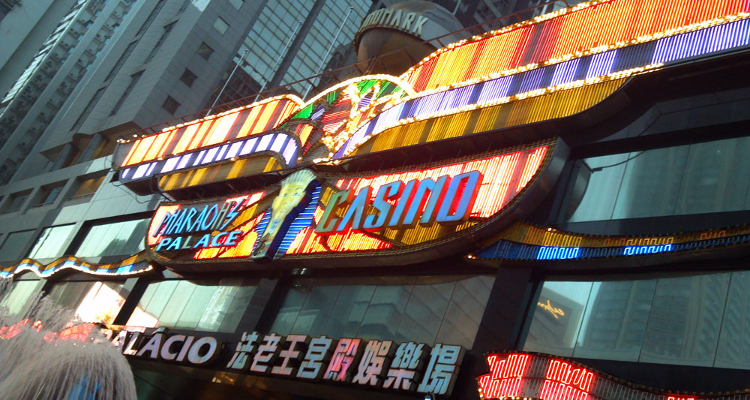The future of The Landmark Hotel and its associated Pharaohs Palace Casino is uncertain after the Friday deadline for a previously announced acquisition agreement passed without a final deal being concluded.
According to a report from GGRAsia, late-March saw Macau Legend Development Limited sign a letter of intent regarding the potential sale of its venue to an individual referred to as “Li C K”. At the time, it described the buyer as “a substantial shareholder” and “a connected person of the company” while the Hong Kong Economic Journal identified the mysterious purchaser as Li Chi Keung, who was described in the Macau-based casino services firm’s 2016 interim report as holding approximately 12% of its shares.
Hong Kong-listed Macau Legend Development Limited also operates the Babylon Casino in the Fisherman’s Wharf district of Macau under a gaming license held by SJM Holdings Limited and declared in a subsequent filing that it has entered into negotiations with a second firm regarding the future of The Landmark Hotel and its Pharaohs Palace Casino.
“At present, the company has been approached by and is in negotiation with a potential buyer, an independent third party, on the potential disposal of the property and remains positive on the disposal,” read the filing. “It is expected that completion of the disposal will occur soon after the potential buyer completes its due diligence and the necessary regulatory approvals in Macau and Hong Kong are obtained.”
August saw Macau Legend Development Limited, which is led by former Macau legislator David Chow Kam Fai, report an interim loss for the six months to the end of June of approximately $22.6 million, which was more than double the $8.8 million deficit it reported for the same period in 2015.
However, the news is not all bad for Macau Legend Development Limited as it completed its acquisition of the Savan Vegas Hotel And Entertainment Complex in Laos earlier this month after paying $42 million in May. The deal for the full-service casino, hotel and resort also contains a 50-year gaming monopoly for a trio of the southeast Asian nation’s provinces including its largest, Savannakhet Province, which forms part of the country’s border with Thailand.



